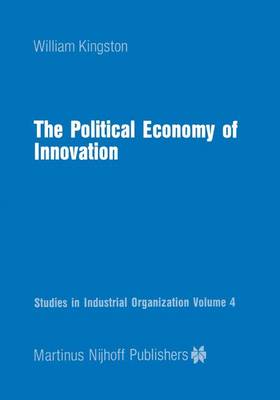Studies in Industrial Organization
2 primary works
Book 4
Innovation is the turning of ideas into concrete realities. To the extent that this process is an economic one, it must also be subject to political decisions, and these determine which ideas are to have resources made available for their in novation. This book attempts to trace the relationship between ideas, resources and politics. Chapter I deals with the way economic innovation depends both upon markets and upon interference with markets. Schumpeter taught us how market power is essential for innovation. This chapter stresses that the inverse is also true: Innovation can take place wherever there is market power. A most important corollary of this, is that failure to develop any particular type of market power, need not prevent innovation from happening. It will then take place under the protection of whatever market power there is, and it will be geographically located wherever that market power is effective. Chapter II identifies and seeks to fill a major gap in the literature on innova tion, by showing how important modern marketing has become for providing the conditions under which money may be rationally invested at high risk to get new things done. Marketing monopoly, or Persuasive market power, is now at least as important as the market power of Capability, or as the several types of Specific market power, in interference with market forces. It is therefore equally important for innovation."
Book 12
This book develops the theme of my earlier Innovation: The Creative Impulse in Human Progress, and considerably expands the latter book. I came to the study of innovation from experience in industry which had brought me into close practical contact with it, and my initial interest in the subject was in terms of the way in which it expressed human creativity. Progressively, however, my focus shifted towards the laws which help or hinder creativeness in being economically fruitful. This led to the writing of The Political Economy of Innovation and the editing of Direct Protection of Innovation. In the latter work, I had the opportunity of arguing the case for specific new law to complement the Patent system, and of having that case criticised by experts. Just as the first book set economic innovation in a wider context of creativity, the present one sets the law that makes it possible in a wider context of property rights. This is because my study of intellectual property resulted in growing awareness of the incomparable past value and even greater future potential of these rights for innovation and prosperity. My intellectual debt to Douglass North is as great in this later stage as it was to Joseph Schumpeter in the earlier one, and to Christopher Dawson, by whom I had the good fortune to be taught in person, in both.

